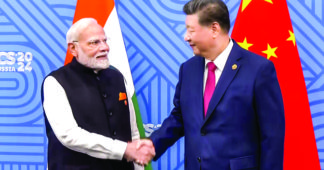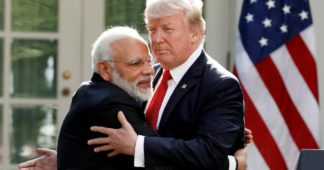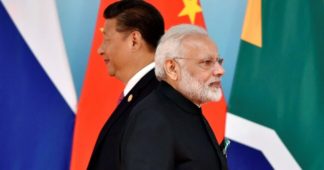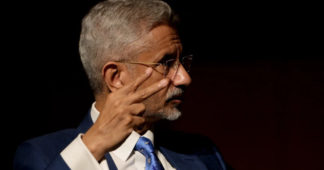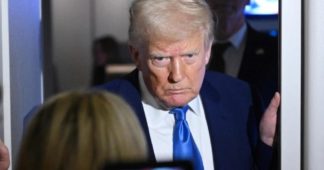Helen Davidson in Taipei
Aug 20, 2025
Countries agree to resume trade links and work to resolving border dispute after visit to Delhi by top diplomat Wang Yi
India’s prime minister and China’s foreign minister have hailed “steady” progress in their countries’ fractious relationship, agreeing to resume trade and other ties, as well as work towards resolving the long-running Himalayan border dispute, amid a global geopolitical shake-up instigated by Donald Trump’s tariff regime.
According to statements from China’s foreign ministry, the two sides agreed to resume direct flights – reiterating a pledge made in January – as well as issuing visas to journalists and facilitating business and cultural exchanges.
On social media, India’s prime minister, Narendra Modi, noted “respect for each other’s interests and sensitiveness”, while China’s foreign ministry said the countries had entered a “steady development track” and should “trust and support” each other.
The visit by Wang Yi, China’s top diplomat, to Delhi came before an expected visit to Beijing by Modi to meet China’s leader, Xi Jinping, in October. It will be Modi’s first trip to China since 2018.
Relations between the two nuclear powers plummeted in 2020 when a border dispute in the remote Himalayas turned deadly. Their soldiers engaged in hand-to-hand combat in the worst episode of violence between the neighbours in decades, with an official death toll of 20 Indian and four Chinese soldiers.
India’s foreign ministry on Wednesday said Wang had met India’s foreign affairs minister, Subrahmanyam Jaishankar, and national security adviser, Ajit Doval, and discussed “de-escalation, delimitation and boundary affairs”.
Chinese state media phrased the discussion as agreeing to “explore the possibility of advancing boundary demarcation negotiations”.
“The setbacks we experienced in the past few years were not in the interest of the people of our two countries. We are heartened to see the stability that is now restored in the borders,” Wang said on Monday.
India said Jaishankar also raised concerns about China’s plans to build a giant dam on the Yarlung Tsangpo River in Tibetan territory – expected to be the world’s biggest hydropower project – which Delhi fears will have an impact on downstream communities and areas.
The thawing of relations between Delhi and Beijing comes as Donald Trump’s unprecedented trade tariffs continue to shake up the global order.
However, earlier this month Trump announced an additional 25% tariff on imports from India, in retaliation for its purchase of oil from Russia. Set to come into effect on 28 August, it will bring the punitive US tariffs on Indian imports to 50%.
India described the tariffs as “unfair, unjustified and unreasonable” and said it would take all necessary actions to protect its interests.
On Wednesday, a senior Russian embassy official in India, Roman Babushkin, said Russia would keep supplying oil to India through a “very special mechanism” and said the Russian leader, Vladimir Putin, would visit Modi in Delhi by the end of the year.
Babushkin also hinted at a revival of Russian plans to stage a trilateral meeting with China and India. “We are quite hopeful that this format will be resumed sooner rather than later, because its importance is not questioned,” Babushkin said.
Sana Hashmi, a fellow at the Taiwan-Asia Exchange Foundation, said the US president’s tariffs and the perception of a reduced US presence in Indo-Pacific partnerships had contributed to and accelerated efforts to stabilise the India-China relationship.
But there remained “fundamental differences” between the two.
“Core security issues and the overall nature of India-China relations will not change because of Trump’s policies, and the Indo-Pacific framework will continue to shape regional dynamics,” Hashmi told the Guardian.
“For now, India’s priority lies in managing tensions with China while navigating turbulent waters with the US.”
After India, Wang will travel to Pakistan, a close ally of China but rival of India. During a four-day conflict between India and Pakistan in May, Pakistan fought using Chinese-made military hardware, including jets. China’s foreign ministry said both India and Pakistan were “important neighbours” of China, but described China and Pakistan as “ironclad friends and all-weather strategic partners”.
“We are willing to enhance friendly cooperation with both countries, and hope that differences between these two countries can be handled properly,” spokesperson Mao Ning said at a regular press conference on Tuesday.
We remind our readers that publication of articles on our site does not mean that we agree with what is written. Our policy is to publish anything which we consider of interest, so as to assist our readers in forming their opinions. Sometimes we even publish articles with which we totally disagree, since we believe it is important for our readers to be informed on as wide a spectrum of views as possible.
